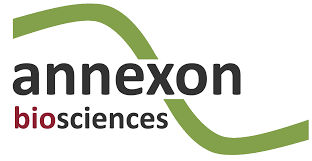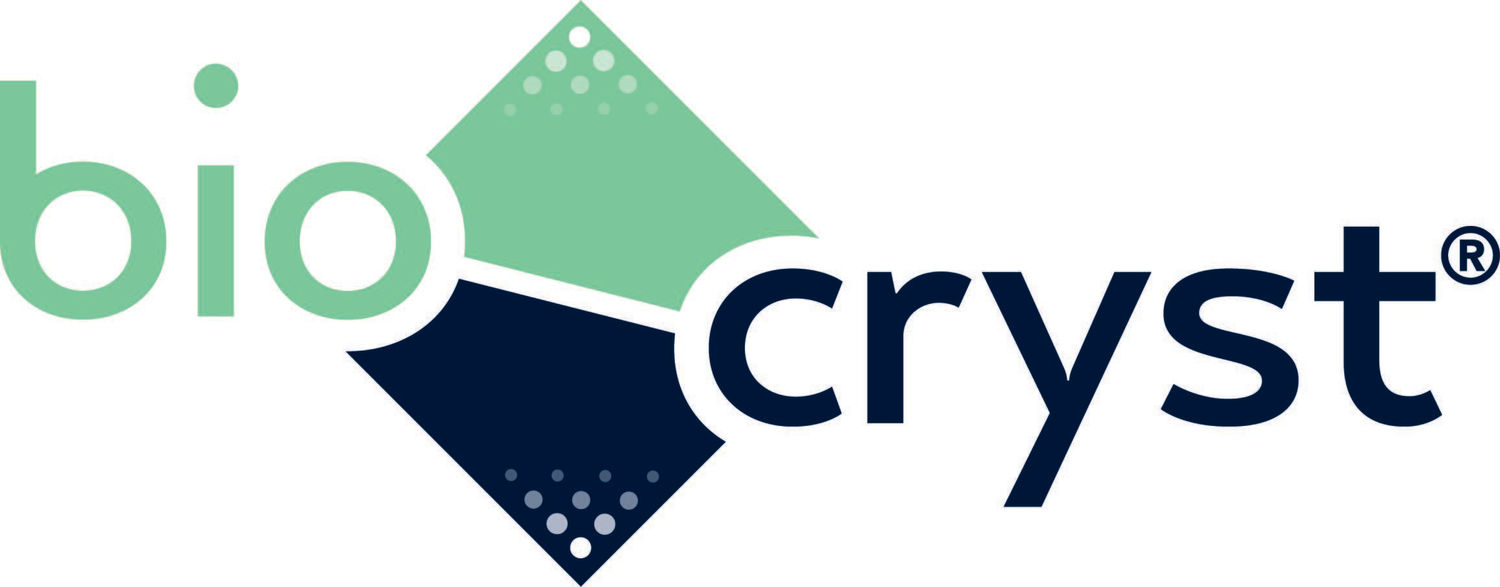Request Demo
Last update 08 May 2025
complement factor
Last update 08 May 2025
Basic Info
Synonyms- |
Introduction- |
Related
18
Drugs associated with complement factorTarget |
Mechanism complement factor inhibitors |
Active Org. |
Originator Org. |
Active Indication |
Inactive Indication- |
Drug Highest PhasePhase 2 |
First Approval Ctry. / Loc.- |
First Approval Date20 Jan 1800 |
Target |
Mechanism complement factor inhibitors |
Active Org. |
Originator Org. |
Active Indication |
Inactive Indication- |
Drug Highest PhasePhase 1 |
First Approval Ctry. / Loc.- |
First Approval Date20 Jan 1800 |
Target |
Mechanism complement factor inhibitors |
Active Org. |
Originator Org. |
Active Indication |
Inactive Indication- |
Drug Highest PhasePreclinical |
First Approval Ctry. / Loc.- |
First Approval Date20 Jan 1800 |
3
Clinical Trials associated with complement factorNCT06945445
A Phase 1, Randomized, Double-blind, Placebo-controlled, Single Ascending Dose and Multiple Dose Study of SLN12140 Administered Subcutaneously or Intravenously in Healthy Adult Volunteers
A randomized, double-blind, placebo-controlled phase I clinical study evaluating the safety, tolerability, pharmacokinetics, pharmacodynamics, and immunogenicity of SLN12140 in healthy participants with single subcutaneous/intravenous dose escalation and multiple subcutaneous administrations
Start Date01 Apr 2025 |
Sponsor / Collaborator |
CTIS2023-507017-10-00
- ANX1502-CAD-02
Start Date10 Jul 2024 |
Sponsor / Collaborator |
NCT05521269
A Phase 1, Randomized, Double-Blind, Placebo-Controlled, Single and Multiple Ascending Dose Study to Assess the Safety, Tolerability, Pharmacokinetics, and Pharmacodynamics of ANX1502 in Normal Healthy Volunteer
This study will evaluate the safety, tolerability, pharmacokinetics (PK), and pharmacodynamics (PD) of ANX1502 (prodrug) and ANX1439 (active drug) in healthy participants.
Start Date27 Jun 2022 |
Sponsor / Collaborator |
100 Clinical Results associated with complement factor
Login to view more data
100 Translational Medicine associated with complement factor
Login to view more data
0 Patents (Medical) associated with complement factor
Login to view more data
171
Literatures (Medical) associated with complement factor31 Dec 2025·Virulence
Antibody-dependent enhancement of ORFV uptake into host cells
Article
Author: Ma, Wentao ; Zhang, Chenyibo ; Tang, Xidian ; Geng, Qingru ; Chen, Dekun
01 Feb 2025·International Journal of Pharmaceutics
An in-situ forming controlled release soft hydrogel-based C5a peptidase drug delivery system to treat psoriasis
Article
Author: Duarte, Francisco ; Tecza, Malgorzata ; McGourty, Kieran ; Patel, Pratikkumar ; Bhattacharjee, Promita ; Hudson, Sarah ; Gedi, Vinayakumar
01 Aug 2024·Kidney International
Inhibition of complement factor C5a or C5aR for cholesterol crystal embolism–related vascular thrombosis with microvascular injury and its consequences
Article
Author: Shapiro, John ; Anders, Hans-Joachim ; Shi, Chongxu ; Droste, Patrick ; Li, Chenyu ; Romagnani, Paola ; De Chiara, Letizia ; Santovito, Donato ; Bandeira Honda, Tamisa Seeko ; Mammadova-Bach, Elmina ; Lyubenov, Lyuben ; Parikh, Samir ; Han, Chao ; Li, Qiubo ; Hoehlig, Kai ; Watanabe-Kusunoki, Kanako ; Long, Hao ; Klussmann, Sven ; Vater, Axel ; Weber, Christian ; Li, Yihong ; Boor, Peter ; Zhao, Danyang ; Carangelo, Giulia
4
News (Medical) associated with complement factor01 Aug 2024
Ionis Pharmaceuticals disclosed the news it no longer sees a future for one of its assets in geographic atrophy alongside confirmation that ION541, an amyotrophic lateral sclerosis candidate, is no longer part of its plans.
Another of Ionis Pharmaceuticals’ key midphase readouts has fallen short of expectations, prompting the biotech to stop studying the Roche-partnered candidate in an advanced form of age-related macular degeneration. Roche exercised its option on the drug candidate, which is variously called IONIS-FB-LRx, RO7434656 and RG6299, in 2022. The Swiss drugmaker took responsibility for global development, with the exception of an open-label phase 2 IgA nephropathy (IgAN) trial and a phase 2 study in geographic atrophy (GA). In June, Ionis identified the GA readout as one of the key value-driving events planned for 2024.The event failed to drive value. Rather, Ionis stopped development of the candidate in GA after seeing the results of the 332-patient phase 2 study that wrapped up in June. Ionis said it saw “favorable safety profiles and good target engagement, but insufficient efficacy to advance into phase 3 development.”Roche is continuing to enroll patients in its phase 3 IgAN study, and data from the open-label trial in the chronic kidney disease remains on Ionis’ road map for the year. But Ionis no longer sees a future for the asset in GA. Ionis’ interest in testing the drug in the eye disease reflected evidence that the alternative complement pathway is linked to GA. Overproduction of complementing factor B, an activating factor in the pathway, is associated with higher risk. Roche targeted similar biology with complement factor D-binding antibody fragment lampalizumab only to see the candidate fail a phase 3 clinical trial in GA in 2017.Lampalizumab was administered into the eye. With most factor B produced in the liver, Ionis gave its GA drug candidate systemically to try to stop the accumulation of the complement factor and the resulting destruction of the macula. Ionis CEO Brett Monia, Ph.D., acknowledged that rationale may fail to translate into an effective drug at a TD Cowen investor event in June.“It's a significantly risky program. But on the other hand, the upside is enormous, since this drug would not have to be intravitreally administered, it would be injected using a simple auto-injector once per month by the patient themselves,” Monia said. “It could be a real breakthrough, game changer for this indication, but it does not come without risk.”Ionis disclosed the failure of IONIS-FB-LRx to live up to that billing alongside confirmation that ION541 is no longer part of its plans. The biotech and partner Biogen reported the termination of development of the amyotrophic lateral sclerosis candidate, which is also called BIIB105, in May after seeing phase 1/2 data.

Phase 2Phase 3
20 Dec 2023
Target Levels of Active Drug Achieved in Healthy Volunteers with Oral Twice-Daily Dosing; Supportive Impact on Pharmacodynamic Biomarker of Complement Activity
ANX1502 Generally Well Tolerated Across Cohorts with No Serious Adverse Events
Tablet Formulation of ANX1502 Expected to Advance into Proof-of-Concept Study in Patients with Cold Agglutinin Disease (CAD) in 2024
BRISBANE, Calif., Dec. 20, 2023 (GLOBE NEWSWIRE) -- Annexon, Inc. (Nasdaq: ANNX), a clinical-stage biopharmaceutical company developing a new class of complement-based medicines for people living with devastating inflammation-related diseases, today reported results from the Phase 1 single ascending dose (SAD) and multiple ascending dose (MAD) healthy volunteer study of ANX1502, a first-in-kind oral, selective small molecule inhibitor that targets the active form of C1s responsible for propagating classical pathway activation in association with C1q. ANX1502 achieved target serum levels and demonstrated pharmacokinetic (PK) measures that support advancement into a proof-of-concept clinical study to assess pharmacodynamics (PD) and efficacy in patients with cold agglutinin disease (CAD) in 2024.
“After more than a decade of groundbreaking research targeting the early classical complement pathway, we are excited to have reached an important step in the clinical development of ANX1502, our first-in-kind small molecule complement inhibitor that we believe can have meaningful impact on a range of autoimmune conditions,” said Ted Yednock, Ph.D., chief innovation officer of Annexon. “We’re very encouraged by the results from our Phase 1 SAD/MAD trial showing that ANX1502 was well tolerated and achieved target drug levels with supportive impact on a key biomarker in healthy volunteers. Based on these data, we look forward to advancing a tablet formulation of ANX1502 into a proof-of-concept study in patients with CAD, which enables us to further explore larger opportunities in serious autoimmune diseases.”
The completed Phase 1 clinical trial is a randomized, double-blind, placebo-controlled SAD and MAD study to assess the safety, tolerability, PK and PD of ANX1502 liquid suspension formulation in healthy adults. The study evaluated single ascending doses of ANX1502 ranging from 25 mg to 1050 mg and multiple ascending doses of ANX1502 ranging from 200 mg twice-daily to 525 mg twice-daily. Results of the study were as follows:
Dose-proportional PK and targeted levels of active drug were observed across both SAD and MAD cohorts
Single doses of 525-1025 mg ANX1502 suppressed C4d serum levels in healthy volunteers with higher than median baseline C4d
Across all doses evaluated, ANX1502 was generally well tolerated with mild to moderate treatment-emergent adverse events (TEAEs). The most frequent TEAEs were gastro-intestinal, which included nausea, emesis and diarrhea.
No serious adverse events were reported, and there were no significant clinical or lab findings.
Following the successful completion of the proof-of-concept study in patients with CAD, Annexon intends to evaluate ANX1502 in serious complement-mediated autoimmune diseases with the aim of providing enhanced efficacy and offering convenient dosing administration for long-term treatment of chronic conditions.
About Annexon
Annexon Biosciences (Nasdaq: ANNX) is a clinical-stage biopharmaceutical company utilizing a distinct scientific approach to stop C1q and all inflammatory aspects of classical complement pathway activation before it starts. As the only company solely focused on shutting down C1q, Annexon is developing a fit-for-purpose pipeline of therapeutics designed to provide meaningful benefits across multiple diseases of the body, brain, and eye. With proof-of concept data in both Guillain-Barré syndrome and geographic atrophy, Annexon is rigorously advancing its mid-to late-stage clinical trials to bring their potential treatments to patients as quickly as possible. To learn more visit annexonbio.com.
Forward Looking Statements
This press release contains forward-looking statements within the meaning of Section 27A of the Securities Act of 1933, as amended, and Section 21E of the Securities Exchange Act of 1934, as amended. In some cases, you can identify forward-looking statements by terminology such as “aim,” “anticipate,” “assume,” “believe,” “contemplate,” “continue,” “could,” “design,” “due,” “estimate,” “expect,” “goal,” “intend,” “may,” “objective,” “plan,” “positioned,” “potential,” “predict,” “seek,” “should,” “suggest,” “target,” “on track,” “will,” “would” and other similar expressions that are predictions of or indicate future events and future trends, or the negative of these terms or other comparable terminology. All statements other than statements of historical facts contained in this press release are forward-looking statements. These forward-looking statements include, but are not limited to, statements about: potential advancement of ANX1502 into a proof-of-concept clinical study in patients with CAD; the anticipated timing of the proof-of-concept trial in ANX1502; potential advancement of a tablet formulation of ANX1502; the potential for meaningful impact on autoimmune conditions; continued development of ANX1502; the potential benefits from treatment with anti-C1q therapy; and continuing advancement of the company’s portfolio. Forward-looking statements are not guarantees of future performance and are subject to risks and uncertainties that could cause actual results and events to differ materially from those anticipated, including, but not limited to, risks and uncertainties related to: the ongoing off-treatment follow-up portion of the ARCHER trial and final results from the ARCHER trial; the company’s history of net operating losses; the company’s ability to obtain necessary capital to fund its clinical programs; the early stages of clinical development of the company’s product candidates; the effects of public health crises on the company’s clinical programs and business operations; the company’s ability to obtain regulatory approval of and successfully commercialize its product candidates; any undesirable side effects or other properties of the company’s product candidates; the company’s reliance on third-party suppliers and manufacturers; the outcomes of any future collaboration agreements; and the company’s ability to adequately maintain intellectual property rights for its product candidates. These and other risks are described in greater detail under the section titled “Risk Factors” contained in the company’s Annual Report on Form 10-K and Quarterly Reports on Form 10-Q and the company’s other filings with the SEC. Any forward-looking statements that the company makes in this press release are made pursuant to the Private Securities Litigation Reform Act of 1995, as amended, and speak only as of the date of this press release. Except as required by law, the company undertakes no obligation to publicly update any forward-looking statements, whether as a result of new information, future events or otherwise.
Investor Contact:
Monique Allaire
THRUST Strategic Communications
monique@thrustsc.com
Media Contact:
Sheryl Seapy
Real Chemistry
949-903-4750
sseapy@realchemistry.com
Clinical ResultPhase 1
14 Sep 2021
The FDA’s recent approval of Biogen’s Aduhelm has provided a spark plug for neuroscience research across the biopharma spectrum with investors more likely than ever to jump on board. A Chicago biotech now has its own clutch of blue-chip backers to pursue drugs across a range of indications — and it all started from a close colleague’s own diagnosis and search for a cure.
OrbiMed startup Vanqua Bio closed an $85 million Series B led by Omega Funds to put its lead candidate targeting the GCase enzyme in the clinic, first in Gaucher disease and then for a rare form of Parkinson’s, the company said Tuesday.
The company’s lead drug, a small molecule activator of GCase, targets the mutant GBA1 gene pathway, which can cause Gaucher and is correlated with a form of Parkinson’s known as GBA-PD that affects around 10% of all patients and a form of Lewy body dementia known as GBA-LBD.
The biotech launched back in 2019 emboldened by the work of Jonathan Silverstein, a former managing partner at OrbiMed who was diagnosed with GBA-PD some five years ago and kickstarted the Silverstein Foundation to pursue cures for that disease. Funds from the foundation helped pay for pivotal genetics research in the lab of Dimitri Krainc, the chair of neurology at Northwestern University’s Feinberg School of Medicine, which now undergirds Vanqua’s platform.
Vanqua relies both on genetics research out of Krainc’s lab and
in vitro
modeling technology that tests compounds in patient-derived neurons, potentially offering an early sneak peek at the drug’s efficacy for human tests. The neurons are derived from induced pluripotent stem cells, which are in turn derived and converted from patients’ skin cells.
It’s an approach that looks to fill in the gap left by inadequate animal modeling for neuroscience, where the chances of success in large indications like Alzheimer’s disease and Parkinson’s have left a slew of failures in its wake. According to Vanqua CSO Kevin Hunt, rodent models simply aren’t good predictors of
in vivo
human testing in neuroscience, and adding a stable preclinical research tool derived from potential patients could eventually help crack the code for a range of diseases with huge unmet clinical needs.
CEO Jim Sullivan, a former VP of research at AbbVie who helped shepherd JAK inhibitor Rinvoq and blood cancer medicine Venclexta into the clinic, and has worked as a venture partner at OrbiMed since 2019, sees Vanqua’s platform as a best of all worlds strategy: combining cutting-edge genetics research and preclinical tools to develop effective molecules with a next-generation modeling approach to up the chances of success.
“Our approach builds on breakthroughs in a couple different areas: one, genetics and pinpointing causes of neurodegenerative disease and two, much more enhanced preclinical models,” he said. “We’re really trying to overcome the limitations of neuroscience research for the last decade.”
The team expects “meaningful” clinical data from its lead drug to be published within the next two years, Sullivan said.
In GBA-PD, which may affect around 800,000 patients worldwide and 100,000 in the US, Vanqua is looking to pair genetic marker researchers pioneered in Krainc’s lab to partner with patient cells and established biology around the GBA1 pathway to tackle Gaucher. But in Alzheimer’s or ALS — or even Parkinson’s, in the case of GBA1 — the genetic correlation is less understood, leaving a big gap where a team like Vanqua could add to the scientific heavy lifting and potentially find a breakthrough along the way.
The Vanqua team acknowledges that cracking the code on Alzheimer’s, for instance, despite the recent approval of Biogen’s Aduhelm, will require a great deal more work in understanding the genetic pathways and developing therapeutic modalities to target them.
But that doesn’t mean they’re not ready to try. After the GCase lead drug, Vanqua has an undisclosed therapy in the preclinical stage that leverages the complement factor pathway to potentially modulate a range of neurodegenerative disorders. The research is still relatively new, but Sullivan said the program could eventually prove to be a game-changer in other large indications.
It’s still early days, but Vanqua has all the trappings of an ambitious platform company and enough scientific cachet to pull in a notable investor syndicate. In addition to round leader Omega, the syndicate is joined by Series A investor OrbiMed and new investors Surveyor Capital, Avoro Ventures, Pontifax, Casdin Capital Management, Eli Lilly, Logos Capital and Osage University Partners.
The biotech expects to use the proceeds to advance its two lead programs and add to its team of 15, potentially doubling in size in the coming years. Vanqua has headquarters in Chicago, near Krainc’s lab from which the team is shuttling researchers over to join the clinical effort. Sullivan highlighted the growing Chicago biotech hub as a major draw for Vanqua and a source of untapped potential for the neuroscience field writ large.
CollaborateSmall molecular drug
Analysis
Perform a panoramic analysis of this field.
login
or

AI Agents Built for Biopharma Breakthroughs
Accelerate discovery. Empower decisions. Transform outcomes.
Get started for free today!
Accelerate Strategic R&D decision making with Synapse, PatSnap’s AI-powered Connected Innovation Intelligence Platform Built for Life Sciences Professionals.
Start your data trial now!
Synapse data is also accessible to external entities via APIs or data packages. Empower better decisions with the latest in pharmaceutical intelligence.
Bio
Bio Sequences Search & Analysis
Sign up for free
Chemical
Chemical Structures Search & Analysis
Sign up for free


